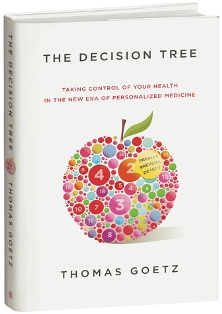
September 17th, 2010 by DrWes in Better Health Network, Humor, News, Opinion
Tags: Doctor's Job, Doctor's Life, Doctors Are Humans, Doctors' White Coats, Dr. Sally Satel, Empathy, General Medicine, Humanistic Qualities of Medicine, Humanistic Side of Medicine, Humanizing Medicine, Humility As A Doctor, Life Lessons For Doctors, Medicine and Humanism, Real Life, Wall Street Journal, White Coat Ceremonies
No Comments »

An excellent opinion piece by Sally Satel, M.D., a psychiatrist, appeared in the Wall Street Journal this morning about white coat ceremonies as ways to reinforce the humanistic qualities of medicine. The best part, however, was this perspective:
But the question of whether empathy can be taught—and, in particular, whether a white-coat ceremony is a good means for promoting that virtue—is a matter of some debate.
Judah Goldberg, a young doctor at Chilton Memorial Hospital in New Jersey raises an intriguing paradox. He asks how the white coat can bring doctors closer to the subjective experience of patients when, as an icon of the profession, it is meant to isolate and distinguish them from the lay community.
“To the extent that empathy can be taught through a ritual,” Dr. Goldberg told me, “a hospital gown, the common garb of human frailty, would be more fitting than a distancing white coat.”
I must say, the thought of everyone seeing each others’ posterior sides as they paraded across the stage at such a ceremony did make me smile. Read more »
*This blog post was originally published at Dr. Wes*
September 16th, 2010 by Maria Gifford in Better Health Network, Health Tips, Interviews, News, True Stories
Tags: #txfm2010, Health and Technology, Maria Gifford, Mayo Clinic Transform 2010, Medicine and New Technology, Personalized Medicine, The Decision Tree, Thomas Goetz, Wired Magazine
No Comments »
 As an invited media guest at Mayo Clinic’s Transform 2010 symposium earlier this week, I had the pleasure of interviewing presenter Thomas Goetz, Executive Editor of Wired Magazine and author of the new book, The Decision Tree: Taking Control of Your Health in the New Era of Personalized Medicine.
As an invited media guest at Mayo Clinic’s Transform 2010 symposium earlier this week, I had the pleasure of interviewing presenter Thomas Goetz, Executive Editor of Wired Magazine and author of the new book, The Decision Tree: Taking Control of Your Health in the New Era of Personalized Medicine.
Thomas writes about science, health, and medicine and believes that engaging people in their health and involving them as participants and decision makers leads to improving their behavior and their health outcomes. He knows there’s a technology emergence of cheaper, better tools that have the ability to offer people a way “in” — from self-tracking gadgets to online disease communities and beyond. Thomas is intrigued by the confluence of ideas and technology that make it an opportune time in healthcare.
 The Decision Tree is based on the premise that our health doesn’t happen all at once, but that it’s a consequence of years of choices — some large, some small, some wise, some poor. A decision tree, therefore, is a “device” that can help make it more obvious that these decisions are something we are actually choosing — a way to externalize the choices that we otherwise make without much thought.
The Decision Tree is based on the premise that our health doesn’t happen all at once, but that it’s a consequence of years of choices — some large, some small, some wise, some poor. A decision tree, therefore, is a “device” that can help make it more obvious that these decisions are something we are actually choosing — a way to externalize the choices that we otherwise make without much thought.
Maria: As executive editor of Wired Magazine, what brought you to write a book about consumer health?
Thomas: I come from a family of healthcare providers — my father is a doctor, my mother is a nurse — so it’s always been a topic area I’ve been comfortable with. A few years ago I felt that I had more to add, and wanted to get more specific in my training, so I got my masters in public health at UC Berkeley. That led me to recognize all sorts of commonalities between the worlds of information technology and public health. At the same time, technologists in Silicon Valley and elsewhere have recognized that healthcare is one of the last industries untouched, in many senses, by the IT revolution. It’s happening now, very quickly, and I wanted to be among the first to not only cover the business, but to cover the way these companies and services will change and improve our lives. Read more »
September 15th, 2010 by RyanDuBosar in Better Health Network, Health Policy, News, Opinion
Tags: ACP Internist, ACP's "Running a Practice", Doctors' Debt, Doctors' Operating Expenses, Dr. Leslie Saltzman, General Medicine, Medical Student Loans, Medicine As A Business, New Doctors, Private Practice Medicine, Solo Practice, Women's Health
No Comments »

Newly minted MDs face student loans the sizes of mortgages and might go 18 months without an income if they try to start up their own practice. And although in the words of one student, “Medicine shouldn’t be treated like a business,” physicians still have to operate their practices like one.
That’s resulted in one doctor facing a half-million in operating expenses every year in Manhattan. A half-dozen other new physicians describe their first years in practice in these two profiles, while a third details how Leslie Saltzman, ACP Member, took advantage of some resources on hand and guidance from ACP’s “Running a Practice” section to quickly grow her solo practice into a full-service resource for women’s health. (New York Post, Kaiser Health News, ACP Internist)

*This blog post was originally published at ACP Internist*
September 14th, 2010 by Berci in Announcements, Better Health Network, News
Tags: Doctors On Twitter, Doctors Who Tweet, General Medicine, Healthcare Social Media, Medicine and Social Media, Physicians On Twitter, Social Media In Medicine, The Independent, Top 5 Doctors On Twitter, Tweeting Doctors, Twitter Doctors, Twitterdoctors.net
No Comments »

I got the honour to be included in the list of the top 5 [Twitter] doctors in medicine published by The Independent. The list was based on Twitterdoctors.net which uses the Klout algorithm for determining the influence of tweeting doctors:
TwitterDoctors.net updates hourly the influence of doctors tweeting based on their activity, RTs (retweets) and followers. The site began its list at the end of July and boasts “1287 doctors with more joining every day” from around the globe including Australia, Belgium, India, UK, Jamaica, Japan, Colombia and the USA.
On September 7, the top five most influential doctors are:
1. @DRoftheVaJayJay
2. @drdrew
3. @brontyman
4. @Berci
5. @hrana
It doesn’t mean that much, but it’s good to know people like the content I share day by day.
*This blog post was originally published at ScienceRoll*
September 13th, 2010 by Iltifat Husain, M.D. in Better Health Network, News, Research
Tags: Evidence-Based, Health Journalism, Healthcare Apps, iMedicalApps, Inaccurate Health Reporting, iPhone App, iStethoscope App, Medical Technology, Misleading Healthcare Readers, Mobile Health, Monitoring Medical Apps, Peter Bentley, The Guardian, University College London
No Comments »

 An article in The Guardian, the popular British newspaper, on an iPhone medical app that attempts to replicate the stethoscope starts out as:
An article in The Guardian, the popular British newspaper, on an iPhone medical app that attempts to replicate the stethoscope starts out as:
The stethoscope — medical icon, lifesaver and doctor’s best friend — is disappearing from hospitals across the world as physicians increasingly use their smartphones to monitor patients’ heartbeats.
More than 3 million doctors have downloaded a 59p application — invented by Peter Bentley, a researcher from University College London — which turns an Apple iPhone into a stethoscope.
It’s obvious to those intimate with medicine that “3 million doctors” using this app was a ridiculous number. Unfortunately, it took The Guardian one full week to realize this egregious error — they meant to say “3 million overall downloads” –- but by then the news had been disseminated to hundreds of news websites, blogs, and potentially millions of readers. Leading readers to infer that with “3 million physician downloads” the medical community had signed off on the app.
The story went on to say:
Experts say the software, a major advance in medical technology, has saved lives and enabled doctors in remote areas to access specialist expertise.
Lets be clear what this application does. Read more »
*This blog post was originally published at iMedicalApps*




 As an invited media guest at Mayo Clinic’s
As an invited media guest at Mayo Clinic’s  The Decision Tree is based on the premise that our health doesn’t happen all at once, but that it’s a consequence of years of choices — some large, some small, some wise, some poor. A decision tree, therefore, is a “device” that can help make it more obvious that these decisions are something we are actually choosing — a way to externalize the choices that we otherwise make without much thought.
The Decision Tree is based on the premise that our health doesn’t happen all at once, but that it’s a consequence of years of choices — some large, some small, some wise, some poor. A decision tree, therefore, is a “device” that can help make it more obvious that these decisions are something we are actually choosing — a way to externalize the choices that we otherwise make without much thought. 











